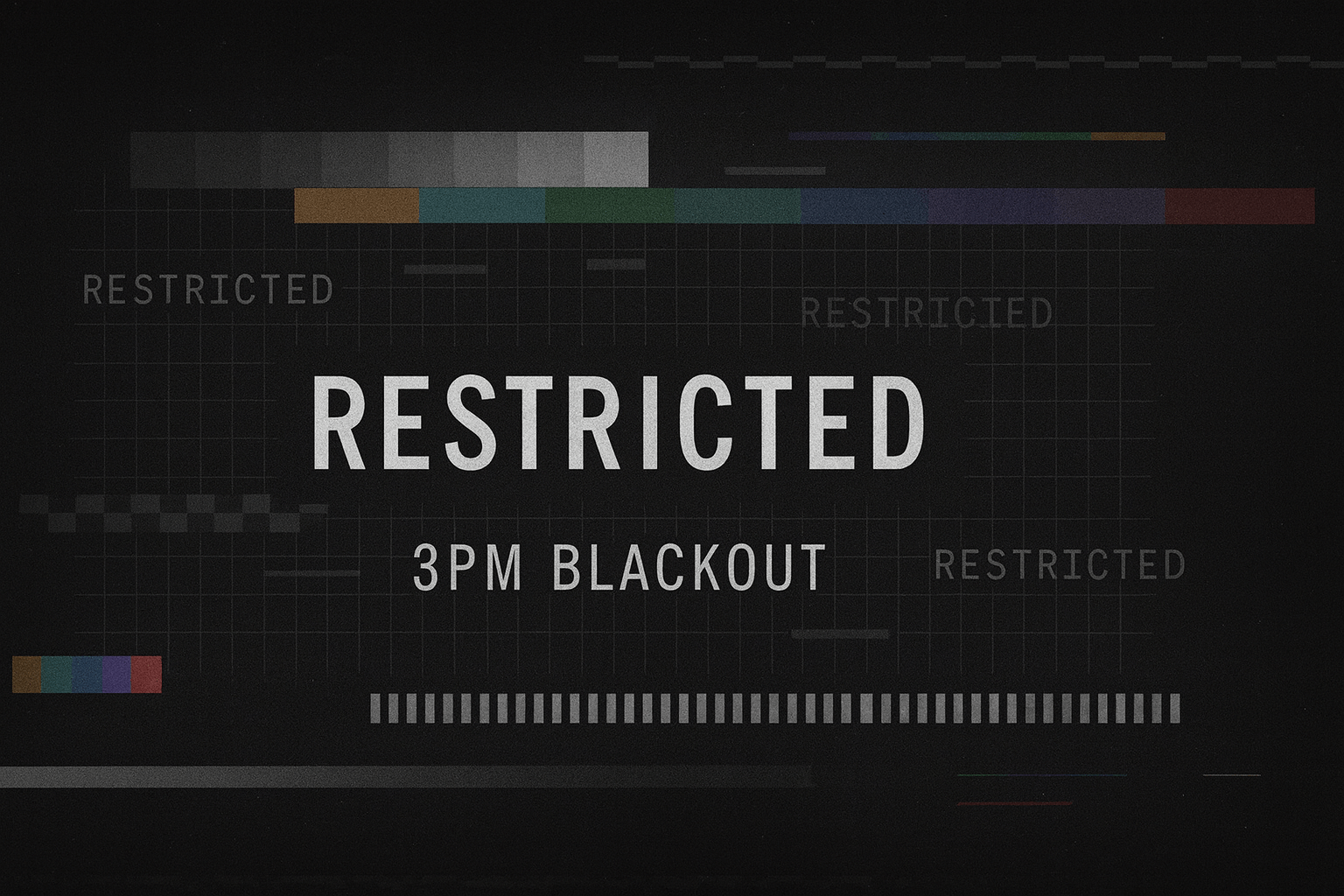Football in the UK is more than a sport. Any fellow Brit would tell you we are a nation of football lovers. Yet on the most sacred of football days, Saturday, fans still cannot watch ANY 3pm kick-off games on TV. It’s a rule that has been in place for decades, one designed for a very different era. The question now is whether it still belongs in today’s game.
Where Did the Blackout Come From?
The roots of the 3pm blackout stretch back to the 1960s, when football on television was still a new experiment. A few club chairmen started to worry that live broadcasts would tempt people away from the terraces. Gate money was everything back then, and losing even a slice of it could cause real damage.
Burnley’s chairman at the time, Bob Lord, was particularly vocal. He argued that if a big club’s game was shown live on a Saturday afternoon, smaller sides would see their attendances collapse. His influence helped push the Football League into creating a ban on live coverage between 2:45pm and 5:15pm on Saturdays.
That deal has stuck ever since. UEFA later wrapped it into Article 48, and the UK became one of the only countries where fans are shut out of their own national game at its traditional time.
Why Some Think the Rule Still Matters
Plenty of people believe the blackout continues to serve a purpose. The biggest concern is the survival of lower-league football. If you had the choice between spending £25 to stand in the cold at a League Two ground or staying home to watch Arsenal play Liverpool, it’s easy to see which way many would lean. For full competition listings, we maintain detailed Premier League and Champions League hubs.
For smaller clubs, every paying fan counts. Lose a couple of hundred through the gates each week and the knock-on effect could be huge. While the Premier League may be bulletproof financially, that’s not the case for teams further down the pyramid.
There’s also the cultural angle. The Saturday 3pm kick-off is part of football’s DNA in England. The blackout pushes people to attend games, follow them on the radio, or wait for the results to roll in. For some, it keeps alive a tradition that has lasted for generations.
Why Others Say It’s Out of Date
Critics argue the blackout doesn’t achieve what it set out to do. Fans who want to watch a 3pm Premier League game will find a way, usually by streaming it online. That doesn’t help lower-league clubs, it just leaves supporters resorting to illegal and unreliable feeds.
It also creates a strange double standard. Fans in the US, Australia or Asia can watch every single match without issue, but supporters in England and Scotland are blocked. Many see that as punishing the very people who live closest to the clubs themselves.
And when you look at attendances, the evidence doesn’t fit the fear. Premier League crowds are booming, with most stadiums sold out. The Championship is drawing big numbers too, and even League One and League Two clubs are posting strong figures. The blackout hasn’t been what’s keeping people through the turnstiles.
In fact, football’s popularity is rising across the board. More people are engaged, more people are paying for subscriptions, and interest among younger fans is exploding on social media. It’s hard to argue the sport is under threat from television when the opposite seems to be happening.
The Modern Football Landscape
The world that produced the blackout barely resembles the one we live in today. Back then, there were only a few channels and hardly any live sport on offer. Now we have Sky Sports, TNT Sports, Amazon Prime and DAZN competing for rights. Fans can watch Friday nights, early Saturday games, Saturday evening matches, and two or three on Sunday. Monday nights too. The one slot that’s still locked down? Saturday 3pm.
And yet stadiums are full. Season tickets are sold out at most Premier League clubs, and lower-league sides are reporting healthy numbers too. Clearly, television hasn’t killed the live match experience. If anything, it has made football more popular and more accessible.
Could There Be a Middle Ground?
It doesn’t have to be all or nothing. Some people suggest lifting the blackout only for the Premier League while keeping protections in place for the EFL. Others like the idea of delayed broadcasts — show the games live abroad, then release them in the UK once the final whistle has blown.
Another possible compromise is financial. Broadcasters desperate for the 3pm slot could be asked to share a slice of the extra revenue with clubs lower down the pyramid. That way, community sides would still gain something, even if a few matchgoers swapped the terraces for the sofa.
Do We Still Need It in 2025?
The blackout was born in a time when football genuinely needed saving from the lure of television. Now, television and streaming are what keep the game alive financially. Yet the rule remains, blocking UK fans from matches they know are happening but can’t legally watch.
Supporters of the blackout stress tradition and the need to protect smaller clubs, which is a fair point. But the way people watch football has changed completely. Fans are global, always connected, and no longer satisfied with waiting for a scoreline on the radio.
The 3pm blackout may have once made sense. In today’s game, it feels more like a relic. Reform or full abolition, sooner or later the question will have to be answered.
